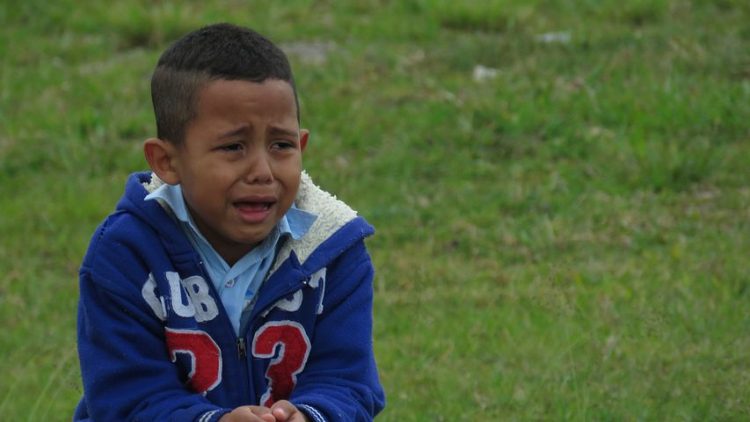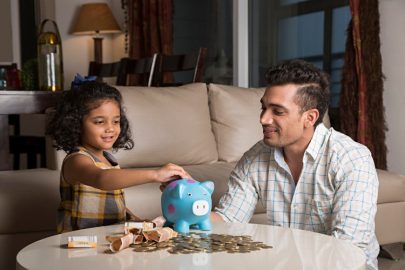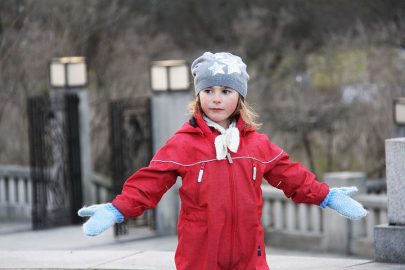Last week, on an evening, I was on a call while my daughter played out with her neighborhood friends. And I was suddenly startled by a loud bout of crying. Obviously alarmed by the pitch of crying (which didn’t seem like my daughter’s), I cut the call & quickly rushed downstairs to check out what had happened. I usually get more concerned when another kid gets injured fearing if my daughter attributed to any of it. Comforting my kid’s 8 year old friend who had apparently fallen & bruised a knee, I asked why he was crying so badly. To which the other children replied in unison, “He fell down & hurt his knee while running as something happened to his sandals!”
Moving on, we brought him to our home & I just did a bit of first aid for him. He still sobbed uncontrollably though. However, upon cajoling a little, he admitted to feeling frightened & not ‘pained’ by the fall. He was terribly scared that his parents would shout at him or punish him for ‘getting hurt’. Well, it’s 2019. But, dear millennial parents, we’re yet to move on from either of the authoritarian or the mollycoddling parenting styles!
Where the ‘Overprotection’ mindset stems from
We, millennials of India, have seen quite a large gradation of events during our growing years. We grew up sneaking into those scary crime shows aired on TV that our parents watched; a lot of which had children being kidnapped, killed or trafficked. While these were intended to make parents alert, they became overly protective instead. Ad commercials, for the first time, targeted parents & insanely promoted kids’ products most of which were totally crap or the ‘spoiling-the-child’ type. Movies ranged from the most illogical & regressive ones to a legion of sensible & progressive flicks being made now. Again, most of the Indian cinema has eccentrically celebrated the ‘strict’, ‘rude’ & ‘punishing’ parent as more successful in raising responsible & accomplished children, who would finally be grateful to them, nonetheless.
Subconsciously deriving influence from all the above & our parents’ ways of dealing with our nuisances, we’ve been conditioned to follow a certain approach towards parenting our own children today.
And to be honest, Indian parenting, sadly has ALWAYS been justified with its 2 forms:
The STRICT & AUTHORITARIAN and,
The INDULGENT or OVERPROTECTIVE
And while new parents from the other side of the world have already started changing parenting with a more balanced & gentle approach, most of us here are still stuck or do not wish to explore parenting methods beyond what we’ve been part of, as a kid.
Why don’t millennial parents want their child to ‘get hurt’?
Consider a typical scenario of a child falling in the park & getting ‘hurt’ (I’ll come back a little later to why I put the word in quotes! 🙂 )
As parents, there are usually only 2 ways you react to this situation:
You distressfully rush to the place, pick the child up, hug him/her tight enough & ask if the fall/wound was too painful & caution him/her from repeating that play to avoid getting ‘hurt’ again in future. Furthermore, no matter how minor the bruise be, you’d immediately pull the kid away from the place for first aid.
OR
You straight away scold or mock him/her for being so ‘careless’ to not watch
out before getting injured. More worse, when a kid falls, I’ve seen parents who yell & tell them to learn from their friends who don’t get ‘hurt’ very often like them.
What are you doing in BOTH the cases?
You’re enforcing a notion into their mind that getting physically wounded is bad, & thus something to dread & avoid. So they unconsciously associate falling to failure or extreme danger. And that they’d be scolded, laughed at or humiliated for that. Now before your thrash me for saying this, let me make myself pretty clear.
Of course, the extent of physical injury DOES MATTER. If your child ends up critically injuring his/her head, it IS dangerous. If he/she falls for a bleeding nose, it DOES need immediate action. And similar incidents of falling do call for a quick follow up.
What I am against is the instilling of a certain sense of fear of falling into the minds of the child.
When I said above that I’d get back to why I quoted the word HURT is because, the extensive usage of the term for that physical injury implicitly connects it with feelings of grief, danger, anxiety, pity, self-pity or humiliation. Looking at a broader picture, all of us encounter these emotions at some point or the other situation later in life; irrespective of what age we are at that point of time. Our mind is the most gullible entity in the entire world. What we make ourselves think is TO A LARGE EXTENT, up
to us. As parents, we are a big support system for our children & if we do not prepare them to face life well enough, we almost fail.
Looking at the alarming stats of teenage suicides abetted from exam pressure, academic low downs, body image issues & heartbreak are pretty much examples which show that the children who took their own life chose to end it over daring to fight their emotional battles & failure.
WHY?
Perhaps, they had got used to always winning. They had never braved or resurrected themselves from failure before. In short, they weren’t prepared to get ‘hurt’ by those situations. Or, they were constantly under the fear of being judged by their own parents. Even compared to their peers.
Isn’t that a closely related question to ponder over?
Coming to kids falling, these experiences teach them a lot. We always egg on infants who keep falling when trying to walk for the first time. But why not later? Falling is very much the abstract of life. Falling is Learning. Now, as millennial parents, remember to ask yourself whether your child’s rising from the fall requires your support all the time is necessary.
Again, I know, a lot of our children are beyond polite explanation of consequences. No doubts on that. My daughter comes in that cohort as well! The naughty one will try to jump from the top of a slide to the ground just for a lark, yet again. Perhaps the previous injury wasn’t rough enough. However, let him/her know that should s(he) repeat that mischief again on purpose, there are limited options of help from you. Be around but avoid letting them feel that you’d go paranoid if they fall. I tell you, these
kids derive a queer pleasure looking at your chills!
Again, NEVER try to mock their antics by laughing or making sarcastic remarks. It’s going to be common for them to face laughter from their friends, which is unfortunately, an impulsive reaction of children when somebody falls in the middle of something. If it happens in front of you, just say, “AW”, with a gentle smile & assure that wasn’t a problem at all. In course of time, your kid will pick his/her spirits up & move on despite everyone else laughing out loud at him/her.
So, YOU, my friend, are one of today’s awesome millennial parents, still warming up to the concept of gentle parenting. Do not let the pre-conditioning or your impulses drive you crazy when your child falls. Let’s be brave & prepare our children to brave their struggles.
Let the term HELICOPTER PARENTING become a stupid passe, millennial parents. So, what do you do when your child falls? Do share your thoughts & experiences in the comments below!











I too am guilty of making a fuss every time my kid had a fall or injury. That explains why she is so scared to participate in any physical activities. Thanx for the article